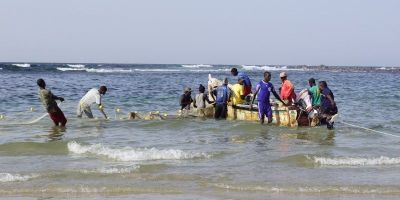Jubilee dinner to celebrate 50 years of Engineering Geology at Leeds: Friday 13 January 2017
Earlier this month (Friday 13th), saw a celebratory dinner held at the Metropolitan Hotel Leeds in recognition of the 50th anniversary of the MSc Engineering Geology course at the University of Leeds.
The Leeds Engineering Geology Society (LEGS) was set up as an informal alumni group that still meets every Friday 13th at the Eldon Pub, across the road from the University. It was decided to mark this momentous occasion by a formal dinner to recognise the achievements of the course.
Ninety guests were in attendance comprising alumni, staff and colleagues associated with the course. Guests came from across Britain and also Norway and Canada to attend the event and represent both recent and longstanding graduates from the course. Those present represented our industry partners, well-known and successful engineering consultancies, other academic institutes and government agencies including Atkins, CH2M Hill, Mott MacDonald, and Wardell Armstrong; Adivsan; Worley Parsons Group, Amey, Arup, Golder Associates, Jacobs, Sweco, WSP, Network Rail, and the British Geological Survey to mention but a few. Guests enjoyed a three course dinner in the 4-Star Grade II listed hotel in the heart of the city centre. After dinner, recently retired Professor of Engineering Geology at Leeds, Steve Hencher delivered a speech where he encouraged those assembled, particularly the recent graduates, to challenge the assumptions of engineering geology in professional practice.
The initially part-time masters course in Engineering Geology at Leeds was first started in 1966 with full time teaching from 1967. It was led by Alistair Lumsden from 1974 to 2001. Alistair was superseded by Dr. Bill Murphy from 2001 to 2013, who continues to contribute to the course in the fields of rock and soil mechanics and hazards, sustainability & resilient infrastructure. Dr. Jared West a hydrogeologist became the current programme leader in 2013 and also delivers teaching on hydrogeology and contaminant processes. Next year the role will pass to Dr Mark Thomas who returned to academia in 2009 following several years in industry, and currently delivers teaching on ground investigation and characterisation to the cohort alongside research in to hazards associated with volcanic processes.
The masters course, one of only three named post graduate engineering geology courses in the UK, has continued to attract high numbers of students who benefit from the course’s applied nature and close links with industry. This results in a range of modules covering geology and engineering, delivered across the School of Earth & Environment and Civil Engineering using both lectures and laboratory practicals. In addition, our strong links with industry, through our alumni network and Industry Advisory Board, means there are multiple site visits to active construction projects such as the Wylfa – Horizon 2 nuclear new build and the A1 Leaming to Barton upgrade and real world dissertation projects. These strong links with industry, including course scholarships, results not only in high application rates, but also a high calibre of student. As a result, the employment rate of our graduates is >90%.




